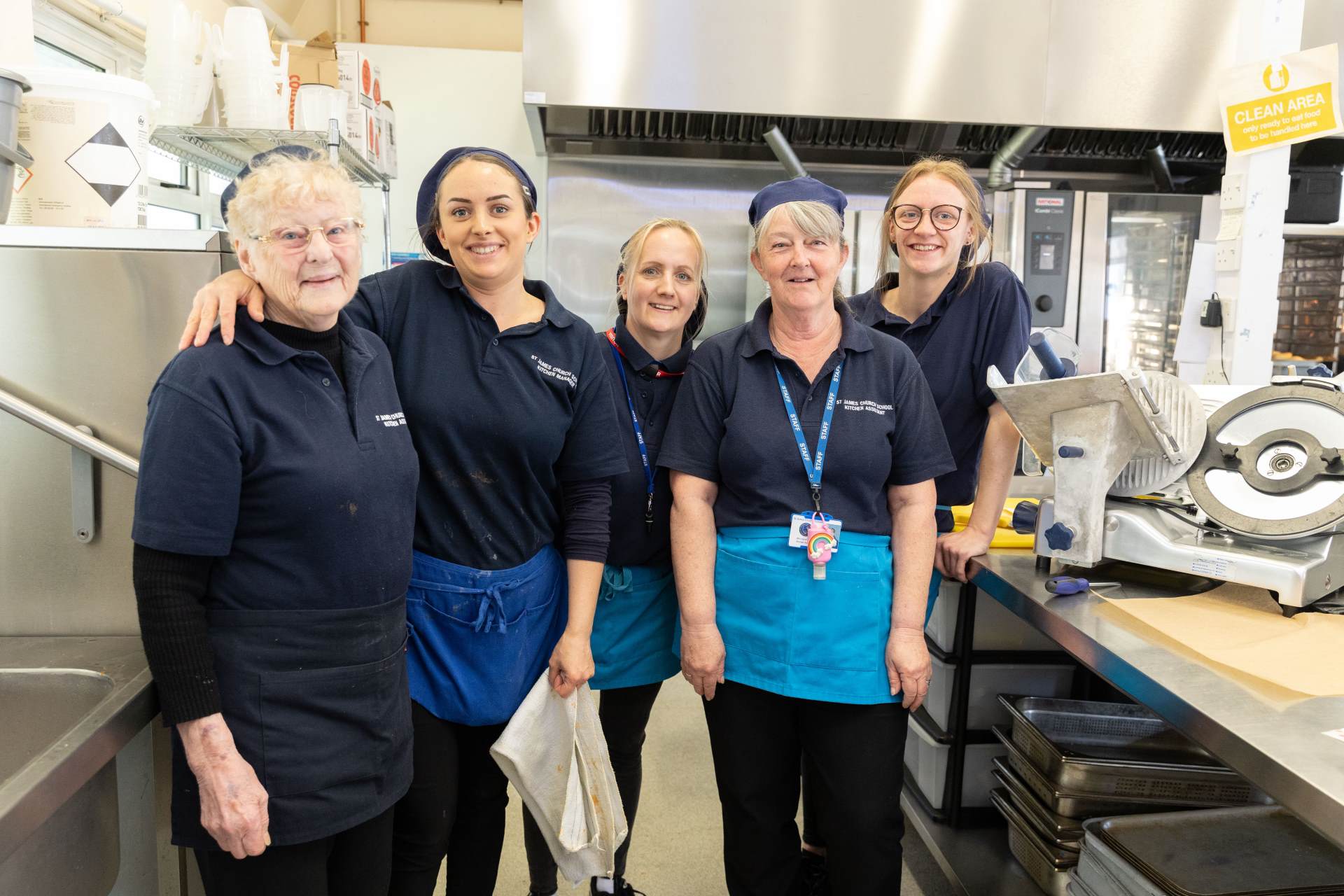Staff Wellbeing
Staff Well being is important to us at St James.
We support staff well being in the following ways:
Rationale:
St James should be a place where well-being is valued, and staff job satisfaction is high. We want to ensure we achieve positive staff well-being alongside great educational outcomes.
Based on research:
Leaders at St James have read the EEF document ‘Supporting the recruitment and retention of teachers in schools with high proportions of disadvantaged pupils: understanding current practice around managing teacher workload’ to inform their thinking: Review-of-teacher-workload-management-approaches.pdf (d2tic4wvo1iusb.cloudfront.net)
On page 6, in this document some of the review rationale is presented and this is very relevant to St James.
We have also used the School Workload Reduction Toolkit to structure our plans.
School workload reduction toolkit - GOV.UK (www.gov.uk) and the report from the Educational Development Trust Supporting teachers through the school workload reduction toolkit: March 2020 (publishing.service.gov.uk)
What we do at St James to support workload and wellbeing?
Marking and feedback:
Our Marking Policy states the following:
The three principles outlined in the School Workload Reduction Toolkit are meaningful, manageable and motivating.
Meaningful: marking varies by age group, subject, and what works best for the pupil and teacher in relation to any particular piece of work. Teachers are encouraged to adjust their approach as necessary and trusted to incorporate the outcomes into subsequent planning and teaching.
Manageable: marking practice is proportionate and considers the frequency and complexity of written feedback, as well as the cost and time-effectiveness of marking in relation to the overall workload of teachers. This is written into any assessment policy.
Motivating: Marking should help to motivate pupils to progress. This does not mean always writing in-depth comments or being universally positive: sometimes short, challenging comments or oral feedback are more effective. If the teacher is doing more work than their pupils, this can become a disincentive for pupils to accept challenges and take responsibility for improving their work.
Feedback can be shared during a lesson, after the lesson or before the next lesson. If feedback is shared after the lesson, it needs to be in a timely manner to enable the child to benefit from the input.
Peer marking/ self-marking:
There should be a progression in peer marking across the school starting with verbal feedback in the early years, moving to recorded feedback by the end of KS1, to more formal comment marking in KS2.
- Children will be trained to do this, through modelling with the whole class and watching the paired marking in action.
- Oracy talk tactics can be used to aid peer marking discussions.
- Class teachers will encourage a dialogue between children rather than taking turns to be the’ teacher’: They should discuss each other’s work together (e.g. ‘I think this sentence really shows how that character feels, what do you think?’).
Communication:
- Weekly Team meeting to reduce the number of emails.
- Clear line manager system with regular floourish reviews and check ins.
CPD:
- Allowed and encouraged, e.g. NPQ, requested courses, Trust CPD/course offer.
- Yearly overview gives access to regular CPD for teaching and teaching support staff that will enhance knowledge and understanding.
- Appraisals booked and completed comprehensively in line with Trust Policy.
- All staff have a training plan as part of appraisals.
- Walkthrus used as a consistent approach to staff CPD.
Learning spotlights:
Alongside staff we have developed our approach to giving feedback to teachers and teaching assistants. Staff identified that formal lesson observations were a source of anxiety and stress, so we have developed a system of reflective learning focused spotlights where leaders and staff review learning in a non-judgemental way.
We use Walkthrus as the basis for the learning spotlights to coach staff through an approach to improving an aspect of their teaching.
Whole school focus on identified target children:
Staff are supported to reach challenging targets for children with a weekly 10min slot in order to be supported to improve outcomes by the subject leader.
Pupil progress meetings:
Pupil Progress meetings are allocated additional time to staff PPA and there is a staff meeting allocated to support staff in preparation for these. The Leadership Team support staff to identify barriers and focus on solutions to remove barriers to good progress.
Welfare:
- Wellbeing board in the staffroom with signposting to services.
- Weekly confidential drop in for Wellbeing for all staff with trained counsellor.
- SEND drop-in sessions available weekly - talk through any 'stuck' cases.
- Fiona (SENDCO) is trained as Mental Health Lead and Mental Health First Aider.
Policy development:
Developing together alongside staff, key policies that make a difference to staff workload:
- Marking and Feedback
- Lesson Observations (Spotlights)
- Relationships/Behaviour
Behaviour and engagement:
Following staff feedback in 2021/22 we appointed a Behaviour and Engagement lead with teaching timetable that allows flexibility to model, support and coach staff with behaviour challenges in the classroom. We continue to support this ‘coaching approach’ as a SLT.
All incidents which result in a suspension and/or a member of staff being hurt/injured must have a structured debrief.
SLT have an open door policy where staff can share/discuss challenges around behaviour and engagement.
Meeting time:
Meetings kept minimal - 1 hour max for the staff meeting in line with NEU recommendations.
Wellbeing drop in:
Every Tuesday
2pm – 4:30pm in Kay’s room
Either drop me an email to book a time or just pop in.
My door will be open when there is a free slot.
You can use this time to off load or to discuss any stresses, worries or issues that you may be having in any aspect of your life. Or just pop in for a chat and a coffee!
Everything discussed will be confidential.

 St James Church
School
St James Church
School




